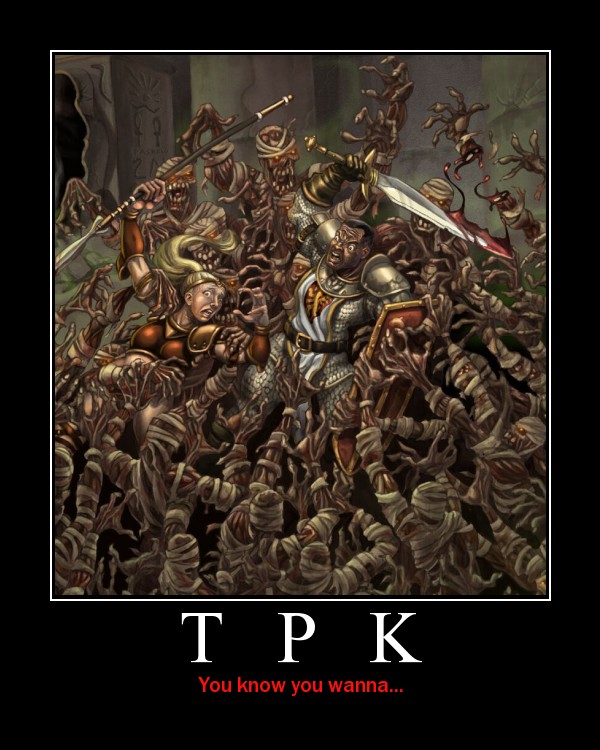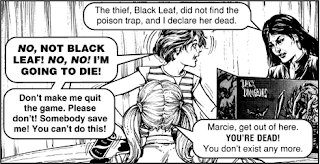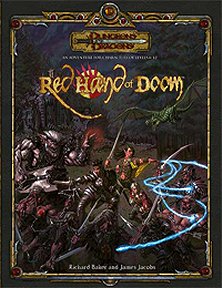 |
| There's a fine line between brave and stupid. |
But wait! There is one monstrosity spoken of that rivals if not exceeds the dreaded PC death, and that is the even more dreaded TPK (total party kill); where the entire adventuring party meets their demise at the hands of some terrible monster or unfortunate end; ending the campaign and the world as we know it. The horror!
Ok, so obviously I'm being a little sarcastic in my delivery of the theme, but that's the gist of it. I keep noticing that in these games where PCs are in constant life or death struggles, people are getting really testy if a PC actually bites the bullet. In d20 based games like Pathfinder (TM) or the 3.5 Dungeons & Dragons (TM) systems where they have sections of the rules entitled things like Death and Dying, one might think that the chance for a character to die doing something dangerous like waging wars and fighting monsters might be almost expected.
 |
| Surely pissing in his cornflakes wouldn't get him that mad! |
This growing trend bugs me for the following reasons:
 |
| Someone might get this reference... |
2) I dislike this sense of entitlement. I'm right on the forefront for PC rights, but this is just silly. I don't advocate using challenges that are beyond your PC's capabilities, and I encourage erring on the side of caution. If you make a mistake as a GM and over estimated your PCs, well apologizing and asking to try again is fine and commendable. However, when an orc warrior rolls a critical hit on his greataxe for 3d12+9 points of damage, don't complain that your GM should have made them wield 1d4+3 daggers or tell him he shouldn't count the critical hit. That doesn't sound much like a good gamer (it sounds kind of whiny actually).
3) If you don't want to play the game, why are you? When my friends and I sit down to play a good game of Pathfinder(TM), we know that our GM will try his best to give us a good game with fun challenges, interesting characters to interact with, maybe a puzzle or two, and a glimpse at heroic action. We'll try to reduce the chances of our demise. We'll make plans, come up with strategies and ideas, and try not to take unneeded risks. We don't want to be on the receiving end of enemies wielding axes, and we use spells like protection from evil and death ward to guard against mind-control and instant-death effects. If our players live, we feel a sense of great success; if they die, we roll new characters and explore a new adventure (or the same adventure through different eyes, occasionally).
 |
| This is not how the game is supposed to be played. |
 |
| This adventure is awesome and hard. |
I've been playing D20 based fantasy RPGs since Dungeons & Dragons(TM) 3rd Edition was released in 2000. I spent a great deal of time on the internet on forums of all kinds discussing my favorite game. This seems to me like a rather recent occurrence in the past several years.
My Thoughts: I think that this attitude is really a negative thing in the gaming community. While not assuredly a problem in every group, the idea that playing the game as it was intended to be played is wrong strikes me the wrong way. It may sound elitist (or perhaps philosophical) but I think it's important to learn from your mistakes. When you run up to a giant and decide to poke it with your sword, and he turns you into pudding, then you'll learn not to do that next time. You can learn from your mistakes. Maybe you find yourself in a situation where you're outnumbered or outmatched; maybe you should retreat and find another solution.
Even if your PC dies, you can always grab some more dice (or your point-buy chart) and roll a new one. Give life to a new character. Try something new, something fun, or just try again. Nothing lost, nothing gained.


No comments:
Post a Comment